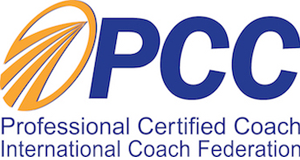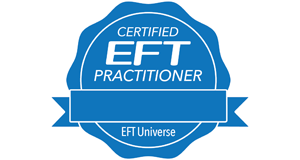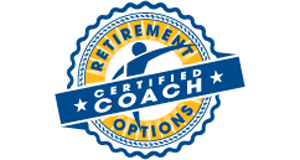About Andrea

Hello! I’m Andrea (She/Her)
Certified Professional Life Coach
As a coach, I am passionate about helping smart, creative, and capable people who have been pursuing important life goals, but who have gotten stalled along the way. (Does this sound like you?) I help my clients discover how they can do better than simply coping with their life challenges. With coaching, you learn how to flourish!
I use positive and energy psychology techniques to help my clients become:
- curious about the positive potential for their lives
- excited about the learning and skills they acquire and the adventures they will have as they work to realize their potential
- delighted with the outcomes they achieve and the benefits they receive along the way.
Coaching can be transformative. My clients become re-energized, inspired, and empowered. As they progress toward their chosen goals, they also gain other benefits: greater positivity, wellbeing, and a sense of accomplishment that infuses the rest of their lives. In short, they flourish!
Like most folks, I have had a variety of work experiences. Over the years, I have earned advanced degrees in counseling and consulting psychology (EdM-Harvard) and social work (PhD-University of North Carolina). I have worked as a certified substance abuse professional and have been a university professor and researcher.

What’s the common theme across all these jobs? I love learning, and I am fascinated by individual resilience and human potential. In one of my research projects at the University of North Carolina, I worked to develop a program which could help “baby boomer “ couples think more expansively about retirement. Most information about retirement focuses on financial goals. We identified a great need to help them think “outside the financial security box.”
Also, life coaches usually work only with individuals. As researchers, we needed to design a new way to work with couples who were going through these normal life transitions. So, our research question was: What kind of program could help these couples plan for and create lives in retirement that were mutually satisfying and meaningful?
While designing the intervention for this project, I discovered positive psychology-based coaching. It seemed like a creative, inspiring way to work with couples. I was intrigued by the potential of this kind of coaching as a way to help adults of any age to craft healthy and rewarding lives. As a result of this project, I decided to enrich my counseling skills by getting trained as a coach.
I began my coaching training while still on the faculty at the University. My work-life in academia was intellectually stimulating, but it was also exhausting. I often worked 60-hour weeks, juggling teaching and research responsibilities. Even though it was a high-pressure job, it didn’t pay very well. This stage of my life ended abruptly in 2008. With the onset of The Great Recession, a lot of research funding—including my own—dried up.

I was offered two choices: leave the University, without benefits, or take early retirement with benefits. After getting over the shock of being forced out of my job, I decided to seize the retirement opportunity. My husband decided to retire at the same time. We decided to act immediately on our longstanding plan to move to Boulder, Colorado, where I could pursue my dream of working as a professional life coach. What great outcome from this very stressful situation!
As a researcher/professor and clinician, I value systematic evidence-based interventions that are more likely to lead to the best outcomes. Those values have guided my choices for training as a life coach. I received my coaching training through MentorCoach, one of the country’s leading coach training programs, acredited by the International Coach Federation. I chose MentorCoach because it was designed for clinical professionals, and the instructors were all PhDs with expertise in applied positive psychology. I earned my International Coach Federation Associate Coaching Certification (ACC) in 2010 and my Professional Coach Certification (PCC) in 2013.
I have continued to pursue specialized, advanced coaching training to develop my expertise in those areas where my clients have needed help (i.e., adult ADD, wellness, PhD coaching). In 2020, I returned to my original interest in retirement coaching and earned my certification as a retirement coach.
I love working with my smart, creative clients. Over the years, however, I discovered that many had longstanding emotional wounds that prevented them from living up to their potential. So, I began researching new ways to help them.
Fortunately, I found them! An exciting new field, energy psychology, has emerged which research shows can quickly heal these emotional wounds. Going beyond conventional “talking therapies,” energy psychology approaches act through the body’s neurological and hormonal energy systems to “rewire the brain.” In 2018, I embarked on a 2-year-long comprehensive training offered by EFT Universe in Energy Psychology and Emotional Freedom Techniques (AKA, EFT or “tapping”). I qualified for these certifications in 2020. Now, I teach these powerful techniques to all my clients. In 2021, I earned another type of energy psychology certification as a Resilient Heart Practitioner The heart and brain are tightly connected. Heart-brain coherence helps to enhance stress resilience.
I value my coaching training immensely. It has helped me tap into my own gifts, skills, and strengths, so I could create a healthy, rewarding life for myself and my family. I have also had the satisfaction of being an effective ally for my clients in crafting their positive life paths.



I still live in Boulder with my husband. We have been happily married for over 45 years. We are committed to applying wellness and positive psychology principles to our own lives, finding joy as members of communities of physically active friends. We enjoy Nordic Walking, hiking in the mountains, bicycle touring in Europe, and other international travel. I am a voracious reader. I love mysteries, science fiction, and fantasy. Enriching my work as a coach, I avidly pursue knowledge about new developments in the fields of adult development, positive psychology, and the neuroscience of human potential.

My Approach and Values
I am a positive psychology coach. The name of my practice, Flourish! Personal Coaching is both a call to action and a goal. In positive psychology, flourishing has six main “pillars” that serve as the foundation for overall wellbeing and for moving people toward greater flourishing:
- Positive emotions
- Engagement
- Relationships
- Meaning
- Accomplishment
- Vitality
See below for brief description of each of these drivers.
To have well-being, you need positive emotions in your life. There are many kinds of positive emotions, including peace, gratitude, satisfaction, pleasure, inspiration, hope, curiosity, and love. The bottom line for well-being? Take the time to enjoy yourself in the here and now, but don’t forget to include the other PERMA-V elements as often as possible.
When you are deeply involved in a task or project, you can experience a state of flow. Time seems to stop, you lose your sense of self, and can concentrate intensely on the present. Being in flow feels really good and it’s good for your brain, too! With practice, you can learn how to achieve flow states on demand and enhance your productivity and well-being.
We humans are “social beings”. It is no surprise that people who have meaningful, positive relationships are happier than those who do not. Attending to the quality of your relationships can make a real difference in your well-being.
The key positive psychology principles I apply in all my coaching are:
- find ways to activate my clients’ potential for health, happiness and excellence, to inspire them to take positive actions, and support their efforts to succeed.
- focus on what is working well for my clients, and how they can make it can work even better.
- do this without being blind to their individual weaknesses, the realities of their negative experience and the full spectrum of human emotions.

My Experience
- Flourish! Personal Coaching (Owner and coach), 2008-present
- Advanced training: 600 hours
- Experience working with clients: nearly 3000 hours
- Associate Research Professor, University of North Carolina, School of Social Work, 2000-2008
- Certified Substance Abuse Counselor, Supervisor, and Professional Trainer, Adcare Hospital Substance Abuse Treatment Center, 1986-1990
As an academic researcher, I have published many articles and made professional presentations about ways to promote stress resilience and well-being, for example:
- · using the Internet to provide psychotherapy and social support to individuals and groups
- · social work and public health interventions for chronic health problems
- · using Energy Freedom Techniques (EFT) to alleviate emotional trauma.
(Publications list available on request.)
My Education
- · University of North Carolina, School of Social Work, Chapel Hill, NC, 1999. Degree: PhD., Social Work
- · Harvard Graduate School of Education, Cambridge MA, 1985. Degree: EdM., Counseling and Consulting Psychology
- · University of Michigan, Ann Arbor, MI, 1970 Degree: BA., Psychology
Contact Me
Do you have a question? Need a bit more information? No worries! Just ask. I can be reached via cell or email.
Cell: 303-810-9125 or email: flourishwithcoaching@gmail.com
Please allow up to 48 hours to get back to you.
Although I live and work in Boulder, CO, I am able to work with clients all over the world because we can meet over the phone or by videoconferencing.
